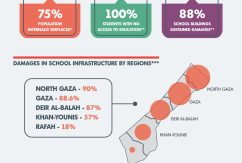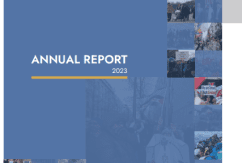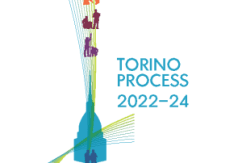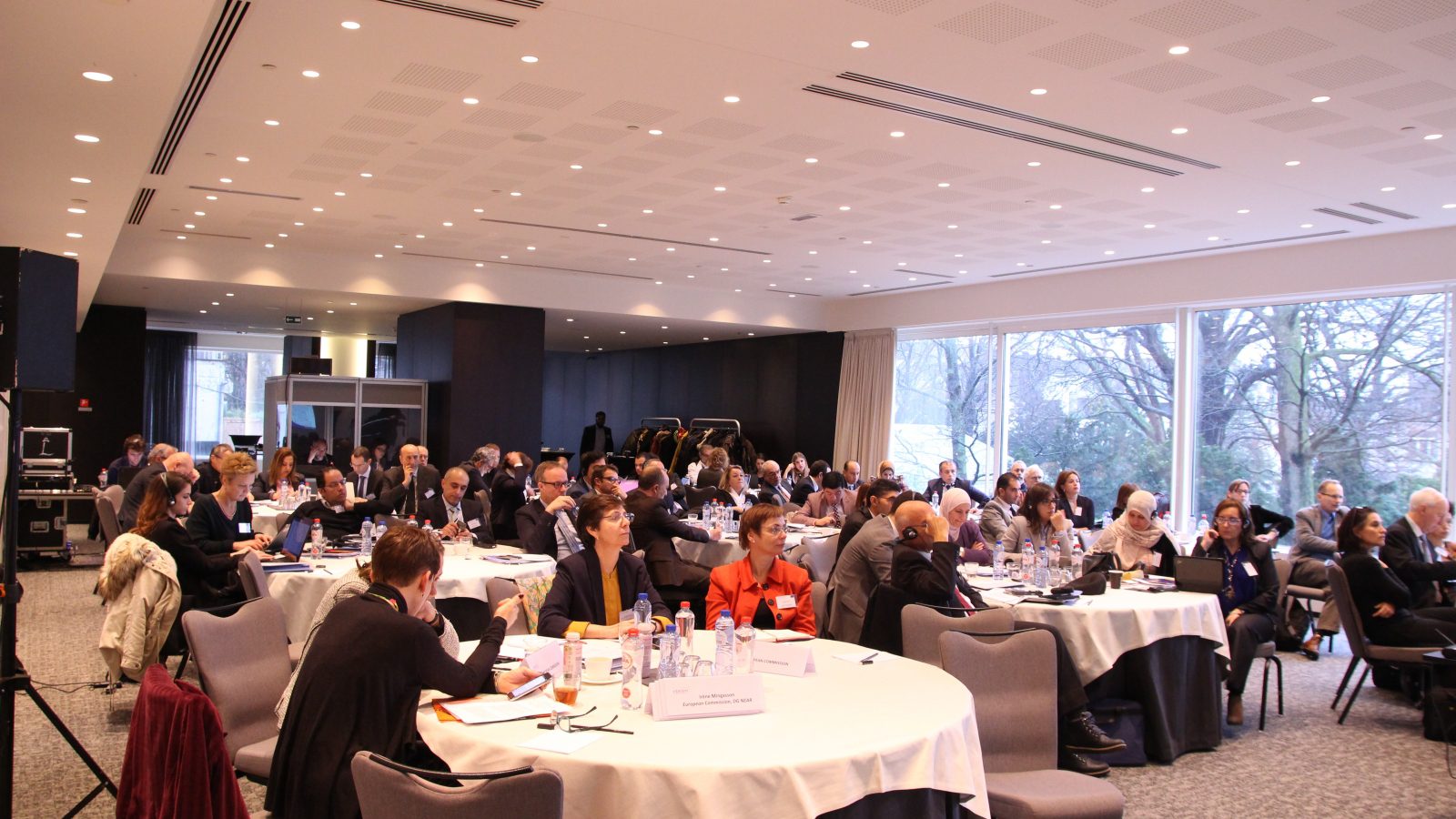EBESM: Contributing to the economic integration of women in the Southern Mediterranean region
Courageous women, without degrees or other qualifications, with modest family incomes, and with no access to capital, are making the move out of unemployment to take on the risk of joining the labour market as self-employed workers. Despite colossal challenges, pitfalls and obstacles, over 80% of them decide to continue their business activity, grow it and persevere even in the event of losses or failure to reach profitability. The “Enhancement of the Business Environment in the Southern Mediterranean” (the EBESM project) aims to contribute to the enhancement of the business environment by promoting the development of Micro, Small and Medium Enterprises (MSME) in the Southern Mediterranean (MED), in line with best European and international practices. The project, financed by the European Union, is springing the last locks still preventing women entrepreneurs from taking off.
MSMEs are the backbone of the economy in MED countries and the most important employers in the region; a business landscape which mirrors that of the European Union. Therefore, helping MSMEs grow will contribute to increased employment and sustainable economic growth in the region.
This holds especial importance because unemployment, particularly among women and young adults, is one of the most critical issues facing the region. By using solid data, the goal is to better understand the potential of integrating women into economic life.
The work of women is not recognised, formalised or remunerated in certain Arab countries, and disparities persist between genders. Women who own MSMEs are first and foremost entrepreneurs who, just as their male counterparts, don’t count their working hours, are liable for their small investments, and must deal with many human, financial, technical and administrative challenges. In order to promote the role of women entrepreneurs and to contribute to greater economic integration, a survey was carried out in seven MED countries, i.e. Algeria, Egypt, Jordan, Lebanon, Morocco, Palestine and Tunisia. The goal of the survey was to collect empirical data on the impact of existing policies that are currently in place to develop female entrepreneurship, and identify opportunities to strengthen them.
The sub-regional focus group (Tunisia, Algeria and Morocco) was held in Tunis on 24 March 2017, with participants from the most active NGOs working to promote female entrepreneurship, organisations representing the private sector, professional associations, and public institutions responsible for developing women’s entrepreneurship. This presented an ideal platform to present the preliminary results of the survey.
The survey in question, which is part of the action on women’s entrepreneurship implemented by the EBESM project, surveyed women without qualifications between November and December 2016.
A new goal
In her speech, Mrs Marie-Jo Char, EBESM Project Leader, emphasised the steps the European Union wants to take to ensure that it is fully involved in the new action to promote women without degrees and to actively provide assistance to these entrepreneurs who encounter many obstacles and challenges when developing their businesses. “This is a subject of great importance, not only because we are women, but also because we are active in the economy. We want to see our countries develop, more job creation, and fairer and more inclusive wealth distribution”, she stated.
“We need to promote the economic integration of women to better assist them and enable them to grow their businesses and create more jobs. This is a new phase which will acknowledge and confirm the role of women entrepreneurs, equip them with greater self-confidence and strengthen their sense of initiative to ensure that they can fully assume their role as full-fledged economic and social partners responsible for, and in control of, their future.”
Who are these women?
Dr Toufic Gaspard, project expert, drew a portrait of the women based on the indicators collected during the study. According to Dr Gaspard, the female entrepreneurs who rely only on themselves account for two thirds of all self-employed women. He added that one woman in seven is an entrepreneur, despite their precarious and often informal status. He also noted that the majority of women entrepreneurs in the region are from poor backgrounds.
Dr Gaspard then went on to state that, according to the survey results, the majority of the women are married, relatively young (between 35 and 40 years old), bringing up two or more children, and working more than thirty hours a week. He further affirmed that, “Most of them have no experience and little or very little wealth”. What is remarkable, is that despite their socio-economic fragility, they decided to take a risk and take a leap into the unknown. “This isn’t an ordinary risk comparable to that taken by businesses in developed countries, but a high-wire risk, like a trapeze artist working without a net,” he concluded.
Women who become entrepreneurs in Arab countries are seeking a way out of unemployment and the informal economy. This is why, despite all of the limitations, they go into business; not because they like risk, but because they need more income to meet family needs.
In light of this, it is very important to understand the real motivation which pushes these women to try going out on their own. For instance, which type of businesses do they choose? “You start by doing what you know or what you’ve learned on the fly”, noted the expert. That’s why the study found that the dominant type of business started by women involves some type of manufacturing or the basic production of a range of handicraft items. They are self-employed, sometimes work at home, and manage their companies, which consist of three employees on average, all family members, in a very artisanal way.
Another pressing question, do these companies succeed? According to face-to-face interviews, 30% of the companies are profitable and some reach the 50% threshold. A mystery or a paradox? How is it that, despite all of the limitations mentioned above, the companies are able to continue operating? The answer lies in the fact that the majority of women entrepreneurs don’t receive a salary, nor do their spouses, nor their children who help them out. In addition, production and operating costs (rent, water, energy, etc.) are not included in their accounting when they operate from home.
Aïda Ben Achour, an artisan who took part in the survey, spoke to the audience about the difficulties she encountered when she launched her project, which was unsuccessful in the end. She wanted another chance and called out for help. Her goal is to distil aromatic plants and sell essential oils, but she is being hampered by bureaucracy.
What do these women want?
Séréna Romano, another project expert, finds the situation somewhat irritating. She believes that the women entrepreneurs are seeking social recognition. “They want to be full-fledged actors in society, but are currently in a state of transition. They are half way to the business world and their relationship with entrepreneurship is incomplete: they have no contracts or loans, pay no charges…The relationship between person and company is still fused and hasn’t yet reached the separation stage”, explained Séréna. Yet, over 80% of the women enjoy business and want to continue the venture. She stressed, however, that they need support and training, the same conclusion that was found in the survey.
The discussions about the results of the survey focused on the challenges and measures that need to be taken to promote entrepreneurship for this category of women. The recommendations of the working groups emphasised the need to prepare a monograph of the regions of each country to define their reserve of potential.
To that end, the path to the next step of the EBESM project, which will involve the implementation of formal public-private dialogue mechanisms, awareness-raising, capacity strengthening, and advocacy, will be marked out by refining the recommendations of the country focus groups through experience sharing. The participants suggested that employment systems should be defined based on a business line logic in order to create a value chain. At another level, easier access to financing and the elimination of obstacles related to securities and the issue of guarantees were raised as crucial points for the development of the projects. They also recommended that training and assistance be provided to women and that the structures which offer these services to women entrepreneurs be better supported.
However, based on the results of the report and its main conclusions, technical assistance can already be provided by the EBESM project to implement a public-private dialogue mechanism to improve policies in favour of women’s entrepreneurship. This assistance could be implemented in coordination with other existing follow-up platforms and mechanisms, such as UN Women.



































